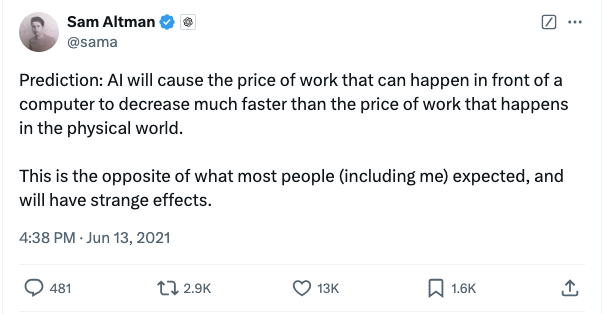Hangouts for Education in Zambia
Whilst I was in Lusaka last month, I tried a rough and ready experiment running a Google Hangout between folks onsite in Zambia and some colleagues back at the office at Bletchley Park. This is the Hangout…
It is pretty cringeworthy in it’s own right; I had no real plan or even idea what we were going to do, and was using a low-tech laptop propped on a brick approach. There was a good reason for it though…
Plenty of computers but teaching help needed?
I was in Zambia with a team of sixteen folks including the rest of my family, working on a couple of school construction projects and earlier in the week the Head Teacher of one of the schools had shown us a small room full of computers. These were standalone second hand systems, installed by another team from the charity we were working with. They were planning to use them to teach ICT and expand their secondary school offering.
I asked one of the teachers how they used the computers and what they taught, and their answer was essentially “we don’t know, please tell us what we should do with them”. Due to staff turnover they had a room full of computers but didn’t apparently have anyone who knew how to teach using them. They asked if I could help them and I felt pretty useless as I know nothing about the Zambian IT curriculum and we were due to leave Lusaka in a matter of days.
The Re-wired team who put the existing computers in do a great job of setting the systems up and training teachers, but any expertise transfer is restricted to a few weeks a year from a dedicated bunch of people who can each manage to raise over £1500 to make a 20-hour journey and live in Lusaka for a couple of weeks. For the rest of the year, the local teachers are on their own as far as I can see.
Getting connectivity in to allow experts to train teachers and help students, week in, week out, is the solution here in my opinion. Further, if real time Internet can be used for other initiatives like getting school students in the UK involved in collaborating on ideas and lessons with their peers in Africa, the benefits are obvious.
The Hangout was actually just a way of proving that this can be done technically. It lasted nearly 30 minutes during which time the quality was perfectly acceptable, particularly at the Zambia end. There are however a couple of problems that need solving to make this real.
Connectivity
The hardest one seems to be connectivity. I did a bit of digging around and our hosts told me that in their experience there was insufficient Internet bandwidth in Zambia to do real time audio, let alone video communications (in their words “you probably won’t get Skype working”). I took this as a challenge!
The local mobile network is a serious bit of infrastructure, you can see a cell tower a few 10s of metres away actually inside the school compound, and lots of other towers within a km or so, providing over the air voice and data to the huge Kaunda Square area. 3G signal and bandwidth was great and there is 4G in some parts of Lusaka.
Unfortunately testing with my O2 SIM roaming onto Airtel gave me poor Internet with huge (1–2s) latencies and <100Kbit/s throughput — no good at all for any kind of real time video or screen sharing. This is probably down to the way that my roaming O2 connection seemed to be tunnelling my traffic back to the UK over congested, probably satellite, backhaul.
Next stop was the local MTN shop to buy a local PAYG Data SIM. This cost me 263 Kwacha, or £26 for a 3GByte 30-day package, and took about 10-minutes to organise, including the mandatory passport check to complete the necessary government ID forms to activate a local SIM in Zambia. The incredibly helpful girl in the shop even noticed my Nexus and asked if I wanted the standard SIM cutting to fit in the Micro-SIM slot before I left.
[pe2-image src=”http://lh5.ggpht.com/-GXNRoRtljBE/U81aphbFc2I/AAAAAAAASxo/S77eAzQEguQ/s144-c-o/P7110231.JPG" href=”https://picasaweb.google.com/107995173534461376930/Zambia04#6038582344766813026" caption=”” type=”image” alt=”P7110231.JPG” align=”right”]Back at Chamba Valley, I had much better luck with this and found I was getting 8Mbit/s down, 3Mbit/s up with low latency to African Internet destinations. To be fair transit outside the continent was much more of a pinch point, but I still managed to get around a megabit of symmetric throughput which is just fine for a bit of video or screen sharing using sensible codecs.
3G connectivity to relatively meagre international transit isn’t great, but will do for basic stuff like screen sharing for teacher training. To make this work for more ambitious projects like real time lesson sharing we may need something a bit better like a fixed wireless, wired, or fibre connection with more generous international transit, but this is seriously expensive in Africa, at least on a standard commercial basis.
Hardware/Software
I ran the hangout above using my MacBook propped on a concrete block, and as far as I could tell, none of the kit installed by Re-wired at Kiine was networked or had things like webcams (why would they?).
Some better kit would be needed to do any kind of two way video, and a decent hardwired gateway device will be needed to route out to the Internet over 3G or anything else. I think something like Google’s commercial Chrome Box for Meetings would be absolutely ideal for the end-point. It is small, low power with a fixed, solid state configuration and simple operation which would make it suitably resilient. Just add a local monitor or projector and press go.
Google Hangouts are a pretty good turnkey solution for remote collaboration and screen sharing, they work fine as a starting point. Further down the road, if this is wildly successful, it may be expedient to put together a customised application using WebRTC for example to simplify use, control resolution better or take advantage of better encoding to reduce bandwidth requirements. For now though, Hangouts, particularly Hangouts on Air which allow later replay of sessions are perfect.
What Next
I’ve been dealing with Internet technologies for my entire career and have seen how constructing networks builds communities where they wouldn’t otherwise exist. The potential to shrink the world by electronically twinning schools in Africa with other parts of the world on a large scale could deliver massive benefits to both parties.
All this said, I’m not the greatest expert in African Internet connectivity or the Zambian education system, and it is very possible that I’m either being naive and the necessary conditions don’t yet exist for this to work, or indeed that this kind of initiative is well underway and there is no incremental value.
Having seen first hand the thirst for education in Zambia and it’s potential to lift people out of poverty, I would really like to try and put together a proof of concept collaboration with at least one school in Lusaka to see if this could be made to work. To do this, I think we would need to find:
- Some reliable connectivity: the better it is, the more can be done with it. It is just about possible to fund say a 6GByte/month MTN PAYG SIM for 2–3 months at £50/month and stick it in a gateway, which should be good for a good few hours of hangout per month, but ideally we need something more sustainable. It wouldn’t really be acceptable to kick something off that is useful and then abandon it after a few months because the connectivity costs can’t be funded. If a donor for some kind of hard-wired or fixed-wireless connection at something like 2–3Mbit/s symmetric could be found (I know this is a big ask at African connectivity costs) then the project could really rock.
- Some hardware: ideally two or three Chromebox for Meetings type devices. The cost is a bit prohibitive to buy these off the shelf as they are really an enterprise “service” product, so the alternative is to build our own using Intel NUC or standard Chromebox with an external Cam/Mic/Speaker (we use the Logitech BC950 paired with a NUC as a cheap facility for hangouts in a couple of meeting rooms at the office and this works fine).
- IT teachers in the UK or, even better, within Africa who would be happy to give up a few hours a month to help train colleagues in Zambia remotely. Even better a whole school who would like to explore the possibility of electronically twinning with a School in Africa.
So, if you want to help and are either a teacher, work for a central African comms company, or could potentially contribute hardware, please let me know as I really want to make this happen if it is at all viable! Even if your feedback is that I’m completely mad and this won’t work, then I’d really like to hear this sooner rather than later.




